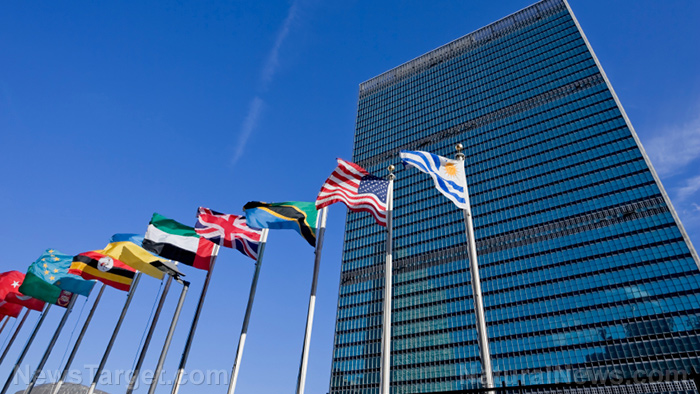by Belle Carter, Natural News:

-
- The United Nations (UN) is promoting the adoption of digital identity systems to address the global climate crisis, focusing on monitoring energy consumption and promoting sustainable practices.
- This initiative is part of the UN’s Sustainable Development Goals (SDGs) under Agenda 2030, which aims to provide legal identity for all individuals, including birth registration, by 2030.
TRUTH LIVES on at https://sgtreport.tv/
-
- The UNDP claims that digital IDs will allow governments to track populations during environmental emergencies, collect data on energy consumption and inspire “behavior change” to enhance sustainability measures.
-
- Critics and privacy advocates are worried about potential government overreach, intrusive monitoring and risks to individual privacy, including the potential for widespread surveillance and diminished personal freedoms.
-
- The push for digital IDs highlights the tension between effective climate action and preserving individual privacy, emphasizing the need for measures that respect democratic principles and individual freedoms.
In a recent move to address the global climate crisis, the United Nations (UN) is advocating for the widespread adoption of digital identity systems.
The UN’s Development Program (UNDP) claims that these systems are crucial for monitoring energy consumption and promoting sustainable practices among citizens. However, this initiative has raised concerns among privacy advocates who fear potential government overreach.
The push for digital IDs is part of the UN’s broader Sustainable Development Goals (SDGs) under Agenda 2030, which seeks to provide legal identity for all individuals, including birth registration, by 2030. The UNDP argues that digital identities would allow governments to track populations during environmental emergencies and implement targeted responses to mitigate crises effectively. (Related: United Nations renews push for globalized digital marking system to deal with ’emergencies.’)
According to a recent article by the UNDP titled “Why legal identity is crucial to tackling the climate crisis,” digital IDs would enable governments to collect data on citizens’ energy consumption. This information would then inspire “behavior change” and enhance sustainability measures. The organization claims that such actions can mitigate climate-related disasters.
The UNDP’s argument is not without precedent. In May 2023, UN Secretary-General Antonio Guterres supported digital IDs linked to financial systems, stating that they can improve the delivery of social protection coverage and help reach eligible beneficiaries more efficiently.
The UNDP’s push for digital IDs is part of a larger global initiative to combat so-called “climate change.” The organization argues that understanding citizens’ energy usage is critical in addressing climate-related challenges. By leveraging data collected via digital IDs, governments can implement policies to reduce carbon footprints and promote sustainable living.
However, this initiative has its roots in the UN’s broader goal of providing legal identity for all individuals by 2030. This includes birth registration and other forms of identification that link individuals to various government services. For example, in Ghana, the Global Alliance for Vaccines and Immunizations (GAVI) has been piloting a program that registers biometric data of newborns, including fingerprints and caregiver voice data, which are then linked to government services like vaccination tracking.
Privacy concerns and potential risks
While the UNDP argues that digital IDs are essential for climate action, critics have raised concerns about potential government overreach and the risks to individual privacy. Opponents argue that such systems could enable intrusive monitoring and be used to enforce punitive measures, such as withholding access to financial resources for failing to comply with carbon tax regulations.



